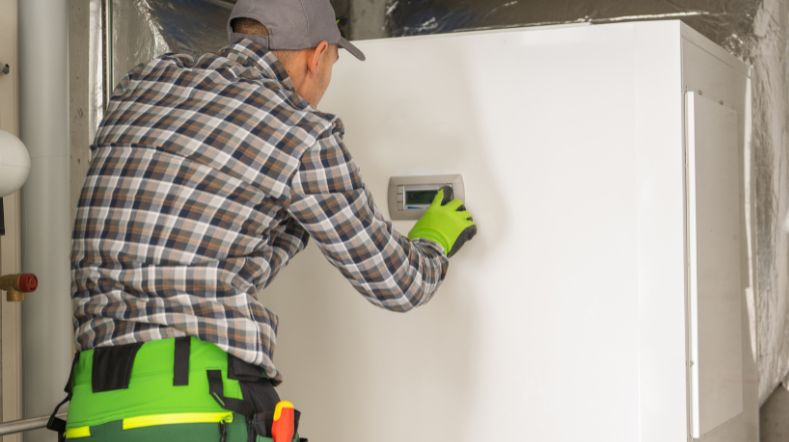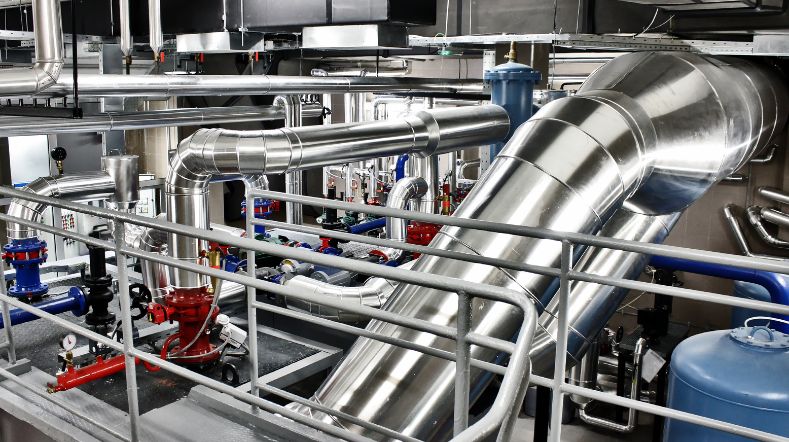
Circular Economy, Environment, and Sustainable Chemical Industry
We must move towards a fully sustainable and circular economy by 2050. This calls for reusing materials, working on a cleaner environment, and reducing CO2 emissions. At TNO, we are developing applications and measures to achieve this.
The Circular Economy unit merged with the Energy Transition unit to form a joint Energy & Materials transition unit.
Circular economy and environment
In the video below we explain how TNO can help society, industries and governments on their way to a sustainable and circular economy.
The goal of the Dutch climate agreement is 49% less CO2 emissions in 2030 compared to 1990. This is only an intermediate step on the road to 2050. According to the Paris Climate Accords, global warming must then be limited to 1.5 or 2 degrees Celsius. By contributing to the climate plans, we at TNO are making a case for these ambitious goals.
Coherence within and between systems
Environment and sustainability problems do not respect borders of time and place. Harmful substances that we emit here can affect people on the other side of the world. And resources that we use now will never be available for future generations. That is why solutions for today and the future require an understanding of how the systems behind them affect each other.
At TNO, we are therefore looking at the coherence within and between systems, so that the climate or environmental gains we achieve in one area do not come at the expense of climate or environmental gains in another area. In doing so, we oversee the systems at various levels, from the sustainable living environment to factory emissions.
Circular economy
In a circular economy, there is no waste and resources are reused over and over again. At TNO, we are working on applications to achieve a fully circular economy by 2050. This is based on the idea that cities are not just for living, but also serve as a huge storehouse of reusable materials. For example, we are working on technologies to make new plastics from discarded plastics. And we are also developing ways to make construction more sustainable.
With technical, social, and economic expertise, we help governments and businesses on their way to becoming more sustainable. By taking a comprehensive look at the possibilities and in collaboration with the various disciplines within TNO, we find the appropriate answer to every question, whether it is a policy dilemma or a technological challenge.
Environment and climate
To achieve a healthy environment, we build models and sensors that map the quality of the living environment and industrial safety. For example, sensors that measure specific substances in the groundwater or air, such as particulate matter from traffic, emissions from agriculture, and microplastics. We also build monitoring networks to detect sources of nuisance, such as noise pollution.
For the climate, we are developing models to measure the Paris Accords and to get on top of climate change. Where are greenhouse gases created, how do they develop, and what can governments and companies do about them?
We study harmful emissions in the air with the help of satellite measurements. And for use on the ground, we make models and small sensors that measure and predict exposure to particulate matter and greenhouse gases.
Sustainable chemical industry
What resources do you use to create a product, how do you produce it, and what do you use it for? At TNO, we believe it is important to make the entire value chain sustainable. With innovative research in public-private partnerships, we are therefore committed to making the chemical industry and the products it produces more sustainable.
This will lead to other resources and make the chemical industry less dependent on polluting energy sources. And we help develop manufacturing processes with higher yields and less waste.
Ambitions for a circular economy
Nobody knows exactly what the future will bring, but there is the end goal of a circular economy by 2050. So we have a number of ambitions:
- To reduce CO2 emissions in the Netherlands
- To reuse more raw materials
- To reduce exhaust fumes
- To use 30% less new materials in construction
- To employ recycling technologies for circular plastics
Expertise groups
Get inspired
Switching to a heat pump is financially attractive for 90% of single family homes


Cooling demand and space cooling: a growing concern in the energy transition

Methane emissions in the North Sea Symposium
Technical catalogue based on Danish model to accelerate the roll-out of district heating networks


Heating and cooling solutions




